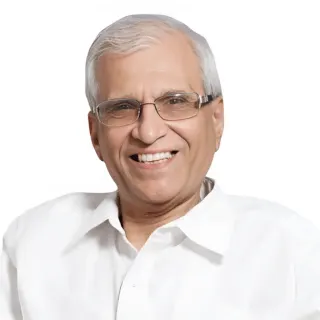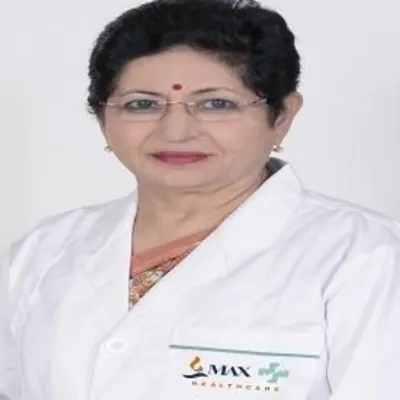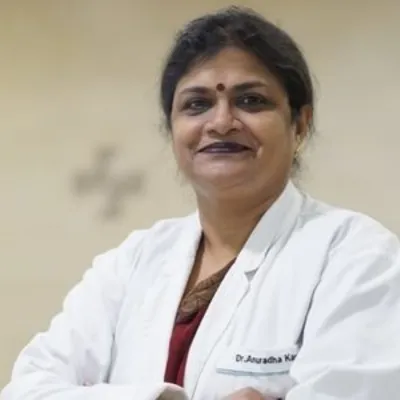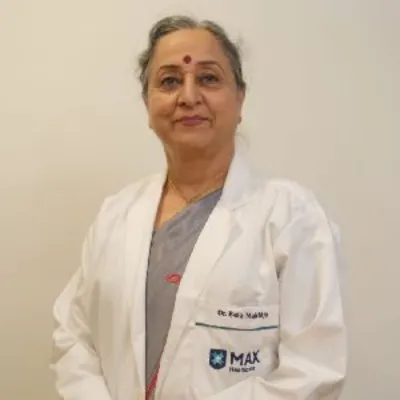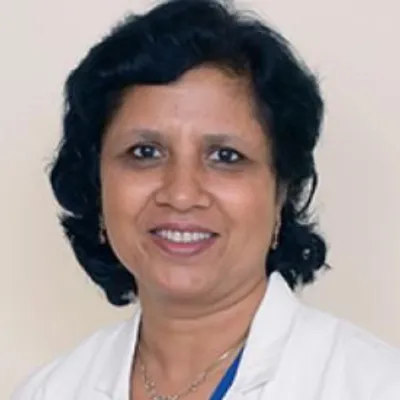Best Cosmetic & Plastic Surgeons in Indraprastha Apollo Hospital Delhi
 29 January,2026
Read More
29 January,2026
Read More
Enquire now in case of any assistance needed
 18 April,2025
18 April,2025

Let’s face it: Our earth has become a global village. Medical tourism is witnessing rapid growth, and patients are travelling abroad for affordable, high-quality treatments. The Medical Tourism Association's projected data shows that approximately 14 million people travel internationally for medical treatment.
People have always made choices about whether to stay close to home for medical care or travel elsewhere for treatment. Now, new technologies are changing these decisions in important ways.
Medical tourism is when people travel to other countries for healthcare. This has primarily been about saving money, finding treatments not available at home, or avoiding long waiting lists. Today, technologies like telemedicine, artificial intelligence, and virtual reality are reshaping these choices.
Now, a doctor can examine you remotely through video, or an AI-assisted diagnosis can help you know about your condition from thousands of miles away. This changes the equation of when and why people might travel for care. But honestly, these technologies create both challenges and opportunities. For some patients, they might reduce the need to travel at all. For others, they make travelling for care safer and more practical than ever before.
Read on to learn how AI, telemedicine in medical tourism, and other technologies are altering the medical tourism landscape. What is the ultimate future of getting care across borders?
Fill up the form and get assured assitance within 24 hrs!
Let’s start with telemedicine and how it has bridged significant gaps in healthcare. Telemedicine in medical tourism plays a pivotal role in making medical tourism more accessible and efficient. Now, consultation is not restricted to borders. Virtual consultations allow patients to connect with specialists across countries before making travel decisions. This simplifies the pre-treatment process and helps in building confidence.
Apart from this, there are remote patient consultations and second opinions. The process further supports patients in evaluating options without geographic limitations, often encouraging them to pursue care abroad. Post-treatment video follow-ups ensure continuous care while minimising the need for extended stays, saving time and ultimately reducing costs.
Today, many leading hospitals offer end-to-end remote care cycles, allowing international patients to receive consultations, treatment planning, and recovery support. The services can be accessed all from the comfort of their home country, except for the actual procedure.
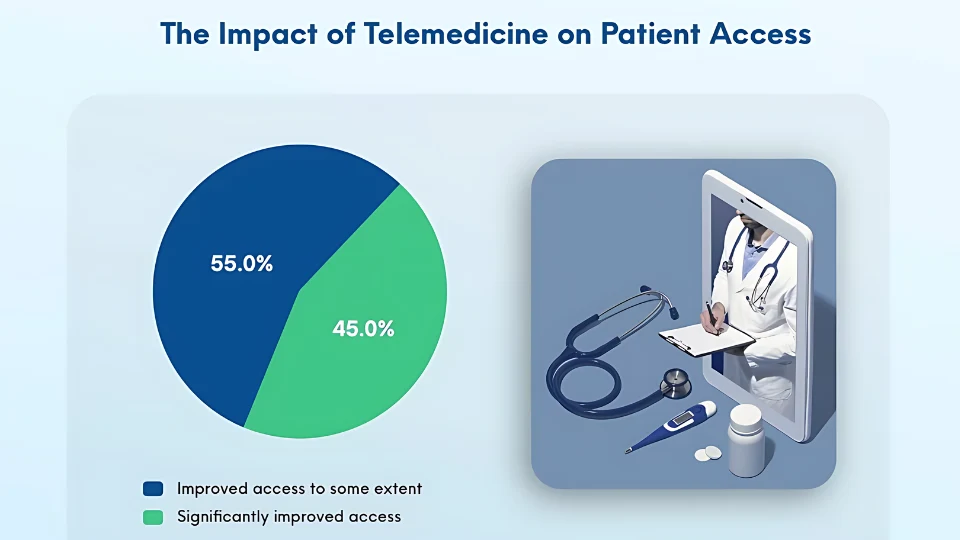
If we take AI as our second example, then diagnostic precision is the prime feature of patient care in the medical tourism sector. Artificial intelligence in healthcare can analyse medical images such as X-rays, MRIs, and CT scans with remarkable accuracy. It often identifies patterns that may be missed by the human eye. But of course, even in the diagnostic process, human intervention is necessary without a doubt.
This advancement in imaging and pathology diagnostics allows international patients to receive timely, reliable results. Sometimes, this happens even before setting foot in a hospital. In addition, AI-driven chatbots and virtual assistants are revolutionising the onboarding experience. It includes answering frequently asked questions, scheduling appointments, and guiding patients through pre- and post-treatment procedures.
In cancer care, for example, AI tools help clinicians develop therapies with greater precision. Also, in surgical planning, robotic-assisted platforms optimise outcomes by guiding surgeons with AI-based insights. These innovations collectively make cross-border medical tourism more targeted, efficient, and outcome-driven.
Smart technologies and robotics have made hospitals more efficient, patient-centric, and attractive to international travelers. Robot-assisted surgeries are a major draw for medical tourists seeking minimal invasiveness and faster recovery times. This is more prevalent in specialties like orthopedics, cardiology, and oncology.
At the same time, IoT-enabled medical devices allow for real-time patient monitoring, enabling doctors to track vital signs. This teaches patients medication adherence and helps in postoperative recovery with greater accuracy. This raises the bar of quality of care, especially for high-risk or chronic cases.
Additionally, smart hospitals now feature friendly multilingual digital interfaces, easy automated check-in kiosks, and simple contactless navigation systems. This can give you and your family a better experience.
As medical tourism grows, the secure exchange of healthcare data across borders becomes increasingly critical. Patients traveling internationally expect their sensitive medical information to be handled with the same level of protection as in their home countries.
Blockchain technology is making a powerful impact and bridging the market gap. It enables secure, transparent, and tamper-proof records that patients and providers can access with confidence. By using decentralised systems, blockchain ensures data integrity and privacy.
This small addition to medical tourism is reducing the chances of fraud, unauthorised access, or record loss during medical travel. In today’s world, countries like Estonia have already implemented national-level blockchain-based health records. Also, pilot projects across Asia and the Middle East are exploring similar frameworks to enhance cross-border healthcare collaborations.
These are turning out to be the key pillars for the sustainable growth of medical tourism in the digital age.
Technology in medical tourism has created new doors for patients. But it still comes with its usual concerns and challenges:
Technology is reshaping the future landscape of medical tourism. It is making it safer, more efficient, and increasingly patient-centric.
Innovation is enhancing every part of the medical travel journey. Emerging trends like wearing health monitors, immersive virtual hospital tours, and even remote robotic surgeries are set to redefine expectations. We at MediJourney are at the forefront of these innovations. Our platform connects you with world-class medical facilities and specialists while leveraging telemedicine for pre-travel consultations and AI-powered tools to help match you with the most appropriate treatment options.
We believe that seeking healthcare abroad shouldn't add stress to an already difficult situation. That's why our team works tirelessly to handle logistics, translation services, accommodation arrangements, and follow-up care coordination. And this is right from your initial consultation to your safe return home.
When we make the world one small, connected place, digital healthcare will remain ethical, inclusive, and accessible. The goal is to give every patient a seamless and trustworthy experience. For every patient, no matter where they are in the world.
Ready to simplify your medical tourism experience? Let MediJourney guide you today! Contact us now.
Fill up the form and get assured assitance within 24 hrs!
B.Sc in Media Science from NSHM Knowledge Campus, Kolkata, 2019-2022
Suryani Dutta is an experienced content writer, specializing in healthcare and medical tourism. With a B.Sc. in Media Science from NSHM Knowledge Campus, Kolkata, she creates engaging, accurate, and SEO-friendly content that empowers patients to make info
Senior Consultant
Neurologist
Dr. Sitla Prasad Pathak is a leading Neurologist in New Delhi with over 14 years of experience. He has treated over 500 patients of acute ischemic stroke using recombinant tissue plasminogen activator (rt-PA). Dr. Sitla Pathak is skilled in managing stroke, epilepsy, Parkinson's, Alzheimer's, paralysis, migraine, and neuromuscular disorders....
Senior Consultant
Medical Oncologist
Nanavati Super Specialty Hospital, Mumbai
WhatsApp UsSenior Director
Gynecologist and Obstetrician, IVF Specialist
Max Super Speciality Hospital, Shalimar Bagh, New Delhi
WhatsApp UsSenior Director
Gynecologist and Obstetrician, IVF Specialist
Max Smart Super Speciality Hospital, Saket, New Delhi
WhatsApp UsSenior Director
Gynecologist and Obstetrician
Max Smart Super Speciality Hospital, Saket, New Delhi
WhatsApp UsSenior Director
Gynecologist and Obstetrician
Max Smart Super Speciality Hospital, Saket, New Delhi
WhatsApp UsSenior Director
Gynecologist and Obstetrician
Max Smart Super Speciality Hospital, Saket, New Delhi
WhatsApp UsThe Art of Effective Communication
 27 January,2026
Read More
27 January,2026
Read More
 20 January,2026
Read More
20 January,2026
Read More
 16 January,2026
Read More
16 January,2026
Read More
 13 January,2026
Read More
13 January,2026
Read More
 09 January,2026
Read More
09 January,2026
Read More
Trusted by Patients
"I am Asim from Bangladesh and was looking for treatment in India for neuro. I visited many websites to get the complete information regarding the treatment but I was not satisfied as I was getting confused. In the meanwhile, one of my friends suggested I seek help from Medi Journey as he experienced his medical journey very smoothly and was satisfied with it. They have filtered the top 10 doctors as per experience, the success rate of surgery & profile, so it helps us to choose the best treatment in India. "
"For my knee surgery, Medi Journey guided me to BLK Hospital where I received exceptional care. The team's support and the expertise at BLK Hospital exceeded my expectations. Thank you Medi Journey for making my medical journey stress-free. "
"I came from Iraq for my granddaughter's eye surgery in India facilitated by Medi Journey, due to critical cases they advised us to get a second opinion from the different hospitals before going to surgery. Finally, we went to Fortis Escort Hospital, which helped us to get more confidence for diagnosis. Fortis Escort Hospital has the best eye surgeon team with the latest instruments. Thanks to all team members for providing a high-quality treatment in India at an affordable cost. "
"I came for my hair transplant in India, before coming I was so confused about choosing the best clinic and surgeon for me. But thanks to God one of my friends had a hair transplant in India through Medi Journey. He recommended me to go with them. I am completely happy with my experience with them. They were always very fast in their responses to me. the success rate of my hair transplant surgery is 100%."
"Artemis Hospital, suggested by Medi Journey, turned out to be a great choice for my treatment. The personalized assistance and medical care were exceptional. I'm grateful to Medi Journey for guiding me to a hospital that perfectly matched my needs. Highly recommended! "
"I came from Afghanistan for my treatment in India at Jaypee Hospital, Noida. I had a fantastic experience with Medi Journey. Kudos to them for their incredible support during my medical journey. They not only took care of all the logistics but also connected me with a fantastic healthcare team. Efficient, caring, and highly recommended for a hassle-free medical tourism experience."
"I am Adam from Kano, Nigeria, one of my friends from Nigeria was facilitated by Medi Journey, and he recommended us to go with them. I sent my all reports to them and within 48 hours they reverted with 4 options from different hospitals. They helped me to get a Visa letter from the hospital, arrange pick-up from the airport, and book a hotel for me. Their team is very honest and throughout our stay in India they are with us they are caring for us like his family members. BLK Hospital is the best hospital in India with a top surgical oncologist surgeon team, a very advanced OT, and a Radiotherapy department. I wish more success to Medi Journey. "
"Great experience at the Max Hospital for my spine surgery and was successfully done. I thank my neurosurgeon and his entire team. I recommended all of my country's people to Medi Journey for treatment in India, they choose the best hospital, the best doctors, and the best cost for patients."
"I came to India from Dhaka, Bangladesh for my father-in-law's cardiac surgery at Fortis Hospital. I was confused about choosing the best surgeon for him before coming, but their team helped me to choose the best hospital and best cardiac surgeon in India with very good cost and 100% success rate of surgery. I am very happy with the services, really they make my journey so comfortable that make me feel at home. Thanks again and I like people to choose "Medi Journey" as your travel guide. "
"I am Mohammad from Bangladesh came to India for my general health checkup. Medi Journey offers me the complete package including Pick-up from the airport, hotel services, and 24-hour assistance. They guide you to choose the best hospital in India, the best cost of treatment with top-most doctors and give you complete information about hotel booking, and pick-up from the airport before coming to India They have the best team to help. Always choose Medi Journey for your treatment in India."
